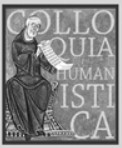Zbor imaat graǵanite: The First Sociological Study, the Polish Sociological Expert Aid to Macedonia in the Mid-1960s and the Post-Earthquake History of Interethnic Relations in Skopje
Zbor imaat graǵanite: The First Sociological Study, the Polish Sociological Expert Aid to Macedonia in the Mid-1960s and the Post-Earthquake History of Interethnic Relations in Skopje
Author(s): Naum TrajanovskiSubject(s): Local History / Microhistory, Social history, Demography and human biology, Rural and urban sociology, Post-War period (1950 - 1989), Migration Studies, Inter-Ethnic Relations
Published by: Instytut Slawistyki Polskiej Akademii Nauk
Keywords: Skopje; 1963 Skopje earthquake; urban sociology; urban planning; interethnic relations; knowledge-transfers;
Summary/Abstract: On the early morning of 26 July 1963, a calamitous earthquake struck the Macedonian capital of Skopje, taking the lives of 1,070 people and destroying more than two-thirds of the urban fabric. The politically non-aligned Yugoslav government immediately issued a call for help for the earthquake-torn city, which was picked up by more than eighty states across the globe, as well as the United Nations and other international organizations. The domestic authorities, in turn, sought to reimagine post-disaster Skopje as a “City of Solidarity,” a symbol of the trans-bloc cooperation, and an “Open City” – one open to domestic and intrafederal migrations and the epitome of the trans-Yugoslav state-building slogan of “brotherhood and unity.” However, the mounting interethnic tensions in the 1980s, the Yugoslav dissolution, and the 2001 insurgency dramatically shifted the public optics over the post-earthquake urban reconstruction and demographic politics – a narrative which found a particular stronghold in the memory politics of post-2001 Macedonia. The present paper discusses one overlooked episode from the post-earthquake reconstruction of Skopje: from December 1964 to April 1965, the first ever largescale sociological survey was conducted among Skopjans as part of the Polish expert aid and the preparations for the UN-sponsored Skopje Urban Project. Although the published study contained an exclusive portrayal of the economic and demographic features of the local households and revealed some of the major interethnic issues in the city, it never received proper treatment by the authorities and – up to the Yugoslav dissolution – in the scholarship. Thus, in order to present the major outcomes of this cross-national endeavor, I reconstruct the prehistory, the fieldwork and the immediate results of the survey by triangulating a set of archival materials, semi-structured interviews with its Polish and Macedonian conveners, and secondary literature on Skopje’s urban reconstruction. Finally, I argue that the survey – its realization, results and aftermath – can be read as a key to a better understanding of the post-earthquake history of Skopje and the interethnic relations in the city.
Journal: Colloquia Humanistica
- Issue Year: 2021
- Issue No: 10
- Page Range: 1-41
- Page Count: 41
- Language: English

